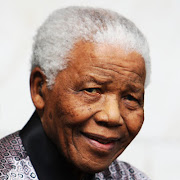The legal department of the Appeals Court in Bamenda decided, according to Cameroon Journal, to serve lawyers in the North West region of Cameroon uniquely in the French language, and obliged the lawyers to make submissions in French. In response, the lawyers agreed a meeting on March 9, 2015 to paralyze the court if forced to make submissions in French. Cameroon Journal reports that the lawyers also threatened to create their own independent Bar Council, and questioned the government's decision to appoint only French-speaking Cameroonians at the legal department of the Appeals Court in the north west.
It's worthy to highlight that the North West region is predominantly English-speaking and most of the lawyers practicing law in the region are anglophones. Why then would a legal department in an English-speaking region decide to serve English-speaking lawyers in the French language?
It's worthy to highlight that the North West region is predominantly English-speaking and most of the lawyers practicing law in the region are anglophones. Why then would a legal department in an English-speaking region decide to serve English-speaking lawyers in the French language?
In my view, the decision is based on the fact that the people working there are either unwilling or unable to speak English, which is a typical attitude in public offices in most parts of Cameroon. There's no problem with not wanting to speak English but there's a big problem, in my opinion, when inability to speak English leads to compulsory French for others.
Cameroon, as stated previously, is a bilingual country. Civil servants appointed by the government should have working knowledge of both languages -- or should at least be willing to use interpreters to make up for their shortcomings. In my opinion, there's nothing wrong with the government appointing francophones to work in the legal department of the Appeals Court in an anglophone region but the appointed people should not force their language on the those they serve.
Cameroon, as stated previously, is a bilingual country. Civil servants appointed by the government should have working knowledge of both languages -- or should at least be willing to use interpreters to make up for their shortcomings. In my opinion, there's nothing wrong with the government appointing francophones to work in the legal department of the Appeals Court in an anglophone region but the appointed people should not force their language on the those they serve.
In my perspective, courts and legal departments should ideally serve people in a language they, the people, understand. Lawyers should have the liberty and freedom to make submissions in a language of their own choosing. While French-speaking staff in the legal department should be free to speak French English-speaking lawyers on their part should be free to make submissions in English. Lawyers in an English-speaking jurisdiction shouldn't be forced to make submissions in French simply because court officials and staff cannot speak or understand English.
Opposition by lawyers of the North West region to what is, I believe, a misguided attempt by the legal department of the Bamenda Appeals Court to force French down their throats is justifiable. But the lawyers shouldn't move to kick out French completely from courts in the North West region. After all Cameroon is bilingual. The lawyers should should insist on making submissions in a language of their choosing. Courts should not be in the business of prioritizing one official language over the other due to staff incompetence.
The way I see it, this problem wouldn't have existed if government appointees met basic language requirements. Politically motivated appointments fueled by corruption, discrimination, favoritism, tribalism, you name it - all wrapped up in a complete package of bad governance - lead to such problems.
Opposition by lawyers of the North West region to what is, I believe, a misguided attempt by the legal department of the Bamenda Appeals Court to force French down their throats is justifiable. But the lawyers shouldn't move to kick out French completely from courts in the North West region. After all Cameroon is bilingual. The lawyers should should insist on making submissions in a language of their choosing. Courts should not be in the business of prioritizing one official language over the other due to staff incompetence.
The way I see it, this problem wouldn't have existed if government appointees met basic language requirements. Politically motivated appointments fueled by corruption, discrimination, favoritism, tribalism, you name it - all wrapped up in a complete package of bad governance - lead to such problems.







